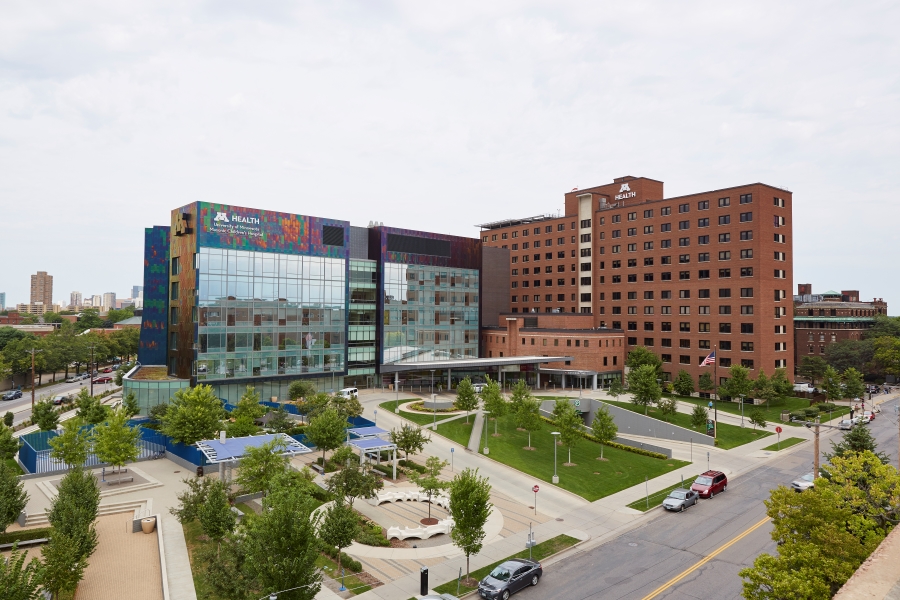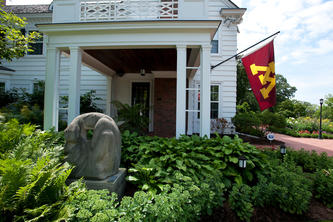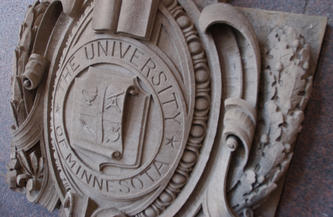
Today, the University of Minnesota Board of Regents approved an updated legislative request to fund the reacquisition and initial operations of the U of M’s health care facilities on the Twin Cities campus.
In comments supporting the $950 million request, Board Chair Ken Powell emphasized the vital role public and state support will play in realizing the five-point UMN Health vision for Minnesota. The proposed request has been the topic of multiple public hearings with state lawmakers in both chambers of the Minnesota Legislature, including strong support from former Governors Mark Dayton and Tim Pawlenty.
“I would like to publicly thank our former Governors, public officials and everyone who recognizes the importance of this moment to the future of health care in Minnesota. The stakes are high for us all. We are presented with a historic opportunity to create a strong University-centric academic health system. For the public interest to prevail, we need the public to care — and to act,” said Powell. The full text of the Chair Powell's written remarks are available here.
The UMN Health vision outlines bold steps to accelerate increased and equitable access to the University’s leading research and clinical care while safeguarding Minnesota’s public academic health assets. The five points of this vision are: a world-class academic medical center integrating teaching and research with top-notch clinical care; University governance and control of flagship health care facilities to ensure the University’s public obligations are never compromised; a strong affiliation with partners throughout the state; planning for a state-of-the-art hospital with the concurrence and support of the legislature; and, addressing the flagship facilities’ needs in the meantime.
“All five parts of the University’s vision are essential to designing an academic health system that will care for Minnesotans over time,” Powell said. “Facilities without strong partners committed to advancing the University’s mission of public health care do not accomplish our public purpose.”
The legislative request approved by the Board will drive the first phase of this vision, aiming to:
Acquire flagship health care facilities, including the University Medical Center East and West Bank facilities, Masonic Children’s Hospital and the Clinics and Surgery Center. This investment includes the transfer of facilities, as well as funding for workforce needs, union contracts and new leadership for a University-operated organization.
Operate the flagship facilities. This investment includes an injection of 90 days of operating capital — a common level for hospitals — to cover payroll, supplies, professional services, etc., and providing time to turn around operating losses and begin generating positive financial results.
The preliminary estimates that informed the request are subject to change and are dependent on many factors.
The University’s comprehensive mission of education, research and public service provides significant benefits to Minnesotans. The Medical School is the eighth-ranked public medical school in the country for NIH research funds. The University is also one of the few nationwide with colleges and programs spanning all disciplines of the health sciences, from medicine and nursing to dentistry, pharmacy, public health and veterinary medicine. The institution also currently partners with more than 3,000 clinical training sites to serve the health care needs of Minnesotans in every corner of the state.
The Board also:
- Approved all amendments to the University’s budget request for the 2024-25 biennium, which included funding requests related to the UMN Health vision, a proposed American Indian Scholars Program, funding for enrollment-driven tuition shortfalls and a potential resident undergraduate tuition freeze.
- Approved real estate transactions related to the purchase of 748 acres in Mower County to support planning for the Future of Advanced Agricultural Research in Minnesota (FAARM) program.
- Received an update from Board Vice Chair Janie Mayeron about the Board’s Diversity, Equity and Inclusion Working Group.
- Received the annual report of the Student Representatives to the Board of Regents.
- Discussed plans to advance the University’s diversity, inclusion, justice and equity vision in the second in a series of presentations from Vice President for Equity and Diversity Mercedes Ramírez Fernández.
- Discussed the impact of the Morris campus on its community, the U of M System and the state.
The Board’s next regular meeting is May 11-12, 2023. Visit regents.umn.edu for more information.
- Categories:
- Campus Affairs
- Board of Regents





